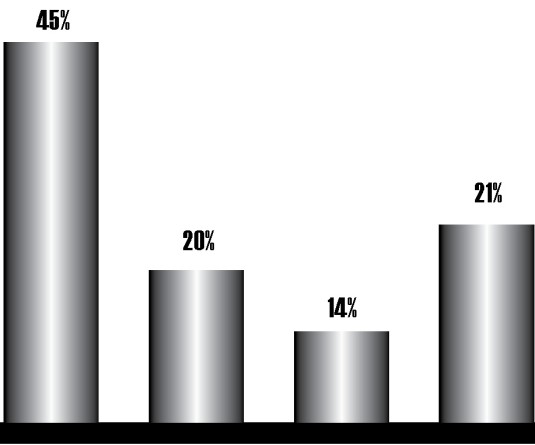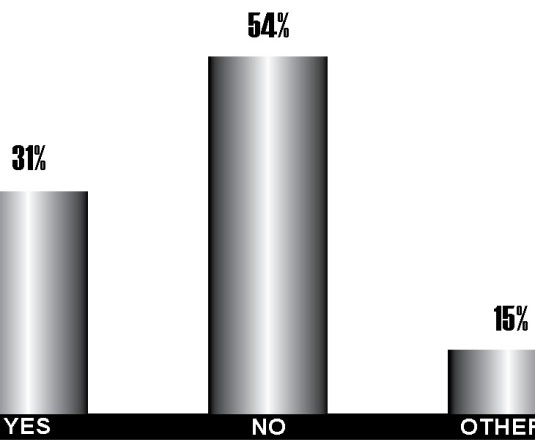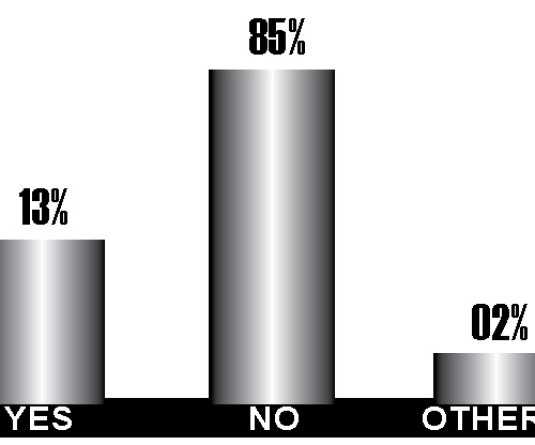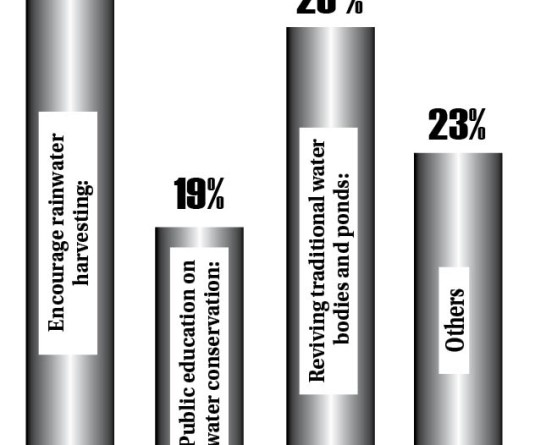
Some of those who voted yes had this to say:
• Education can never be instilled in young minds in an atmosphere of fear. It's high time the teachers understand that there are many other ways of disciplining their wards.
• There is no reason why corporal punishment - legally or illegally - should be allowed to continue. Corporal punishment is not right not only is it the wrong approach towards education but it is counterproductive. How will beating a student make the student better, instead it will yield a negative result. This outdated approach must be stopped immediately and schools that are found doing corporal punishment must be suspended by the education dept. Unless this kind of action is taken, it will not stop. Also a special cell should be formed where students can report teachers and schools guilty of corporal punishment.
• There was a time that corporal punishment was acceptable, not by law, but by convention. But now the opinion is changing, more and more people are becoming more aware and also more legally conscious. In Nagaland, too there is some serious corporal punishment happening in schools - that too at a young age. It is time that the Nagaland government take some strong measures and pass a resolution banning corporal punishments in schools.
• Cos students r not paid for it. Moreover teacher’s r not paid 4 imposing punishment 2 innocent students.
• Punishment is for criminals, whereas discipline is character building. Corporal punishment is abusive in nature and it surely retards a child learning process as well as long life negative effects.
• Yes, State must ban corporal punishment in schools. Conducive environment for learning without any fear is a must to mould younger generation.
• Yes, irrational attitude of some teacher vent their ire on voiceless innocent children, causing irreparable psychological damage.
• Yes, because school is a place of learning and personality development of students but not a place to be tortured physically. Instead if teachers/parents want to make their students/children good then they should give good advise/instructions and show good example to their students/children.
• Corporal punishment is not acceptable. But a closer look will tell you that such corporal punishments are taking places in schools that do not have a disciplinary law and where the quality of teachers are not sub-standard. Everything in Nagaland is very carefree and its about taking short-cuts and making a fast buck. Most of the teachers today are in the profession not because they love it, but because they want to make a fast buck and so they lack the commitment, passion and most of all the patience to understand the students and help them to grow. It is because of bad outdated teaching methods and sub-standard teachers that the corporal punishment in schools has risen and also the number of drop outs have increased.
• Yes, without a doubt, corporal punishment in schools must end. For too long this has been going on without the knowledge of the law. Parents are often too afraid to speak because of fear that their child will be asked to leave the school. This must stop and strict disciplinary action must be taken on teachers who are guilty of corporal punishment.
Some of those who voted no had this to say:
• There is no need for the government to introduce another law which it will not be able to implement. What is more important is to have a more thorough procedure for hiring teachers. This is very important. The process of hiring teachers or even getting a certificate to teach should not be taken for granted. A good and qualified teacher will never raise hands upon a student, but will use other means in disciplining a student and helping the student to progress all round. But here in Nagaland we dont even have a process and all kinds of people who are not qualified to be teachers are actually teaching. So it is not surprising that the quality of teaching is sub-standard and there have been many cases of abuses on students. So rather than banning corporal punishment, it will be better to introduce a standard procedure to certify teachers, and only certified teachers should be allowed to teach. I think this is a very practical step.
• Let us not forget the old saying 'spare the rod and spoil the child'. Today look at us, situation is getting worse, like rape extortion and so on. Its like we haven't learnt any thing from our school. Do we respect the law? All this starts from our school. If students are not made to fear and respect the law. Then in life too, they cannot become responsible citizen.
• Though extreme cases should be check. Its too early for people like us to ban such thing. In our society such thing is a way of life.
• No, our govt should not ban corporal punishment in schools. Stick should be used for guiding the students. Punishment should be limited, and too much beating will not do, because there is a limit for everything. Stick is the key for some students to progress because under this a student can really change. Through mistakes a person gets punishment and under this he’d become someone great. Students with positive thinking can progress through corporal punishment and there is no doubt, we should have corporal punishment.
• I see no reason why a legislation should be introduced just to ban corporal punishment in schools. Every school must have a policy on discipline because discipline is important and essential for a child's growth. At the same time, there must be regulations concerning discipline and these regulations must be strictly adhered to. Its the responsibility of every school to ensure that they do not abuse the child, and so I dont think the government should not interfere in this matter. There must be some autonomy imparted for all schools.
Some of those who voted others had this to say:
• I think there is an agreement that Corporal punishment should be banned not only in paper but also in spirit. But I don’t think there is a general consensus on what corporal punishment constitutes. There is a tendency to interpret things to the extreme, and one will have to be careful on that. Every school has its own disciplinary actions for wrongs done by students, and so that should be there, but it should not include corporal punishment, but the question is what action constitutes corporal punishment.
• Yes, it should be banned, but there should be some reservations. And I think there should have a balance because there are some particular students that take advantage of the situation and try to disturb the serenity and good relationship.
• A clear distinction has to be made between discipline and corporal punishment. In a society like ours, we often do not make such a fine distinction, and so there is a tendency to take things to the extreme. Discipline is important in schools to maintain order in school, if not everyone will be doing as they please. But it is important that such disciplining does not involve any physical abuse of the child, and even excessive mental abuse must be avoided at all cost. A careful policy must be adopted where a child can be reprimanded and made to recognize ones own mistakes without any punishment.
• Nagaland needs a stronger education policy and within that policy it must address the broader issue of discipline measures by teachers and also ragging. Just enacting a law on corporal punishment will not do. It needs to be much more comprehensive. Just look at the number of schools mushrooming, this has become a business rather than providing quality education. The government should curb such mushrooming of schools. But this can only be done if and only if there is a strong education policy and provided the government is really concerned and serious about imparting quality education to the future generation.






